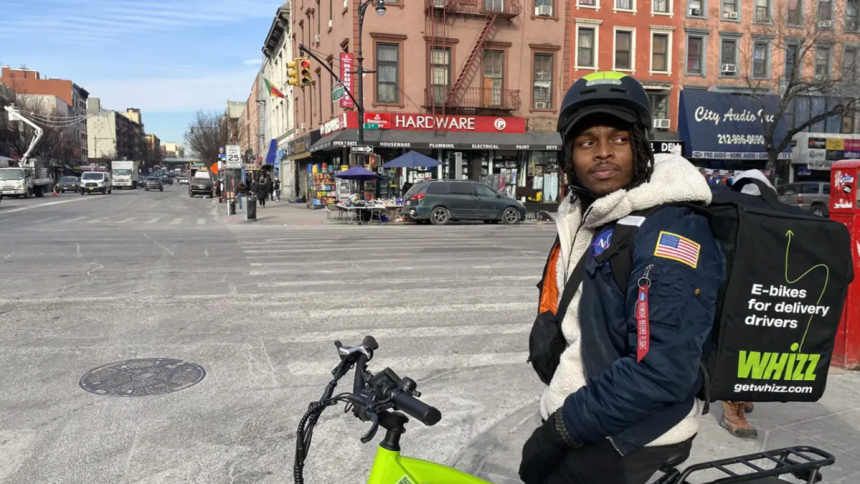In major cities like New York, Chicago, and Philadelphia, French-speaking immigrants from West and Central Africa are becoming an essential force in the delivery world. Many arrive from African countries such as Guinea, Senegal, and Chad.
For them, electric bikes offer more than just transportation – they’re a
practical vehicle which helps to earn a living, help loved ones back home, and
carve out a future with greater independence.
Most of these delivery workers are in their late 20s to mid-40s and carry
strong motivations that go beyond daily earnings. For them, every mile traveled means another step toward long-term goals—starting a business, supporting a family, or continuing their education.
Take Alay, for example—he hopes to one day open his own grocery store.
Others, like Diallo and Alibou, are working toward goals like investing in real estate or picking up the careers they left behind. Still, getting to a place of stability has been anything but simple.
Before getting started with delivery services like Whizz, many had already
overcome tough obstacles. Some couldn’t afford a reliable e-bike, while others
struggled with unreliable transportation or inconsistent jobs.
Language barriers added another layer of
difficulty. “I decided to do Uber deliveries because of the language
challenge,” said Mahmoud, who is also pursuing a return to software engineering.
That’s where the Whizz platform comes in. By offering rental e-bikes with
dependable battery life and integrated security features, Whizz helped many
overcome the obstacles that once kept them from steady income. “The
brakes are excellent, and the battery lasts longer,” said Kheromalang.
The service gave riders a way to get started without the financial burden of buying a
bike—an important factor in communities where theft is a common concern.
Referral and community trust also play a key role. “A friend recommended Whizz,” said Gana. “He said it was safer to rent than to buy.”
These peer recommendations have created a tight-knit support network
among French-speaking delivery workers, many of whom now serve as informal
ambassadors for the service. On an average day, these riders earn between $100 and $120. On good days, earnings can climb higher. “If things continue this way, I’ll achieve my goals in two years,” said Mohamed Koureh. These incomes have allowed workers to support families back home and even begin saving toward major life goals.
Still, there’s room for improvement. Riders have voiced concerns about long repair
wait times, occasional unclear charges, and the need for stronger customer
support—especially in French. “You should hire francophones,” Koureh suggested.
“Many people need interpreters.” Despite these challenges, the sentiment is largely optimistic.
Delivery work may not be a permanent career path for most of guys, but it’s a
good starting point. As one rider put it, “You can work according to your time and availability.”
These days, the steady buzz of e-bikes weaving through traffic isn’t just about speed or convenience—it reflects the everyday grind and quiet ambition of
riders working hard to move their lives forward, one order at a time.
Lynn Martelli is an editor at Readability. She received her MFA in Creative Writing from Antioch University and has worked as an editor for over 10 years. Lynn has edited a wide variety of books, including fiction, non-fiction, memoirs, and more. In her free time, Lynn enjoys reading, writing, and spending time with her family and friends.















